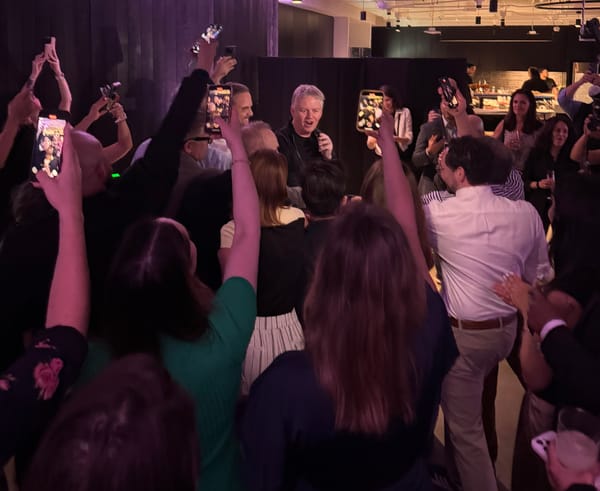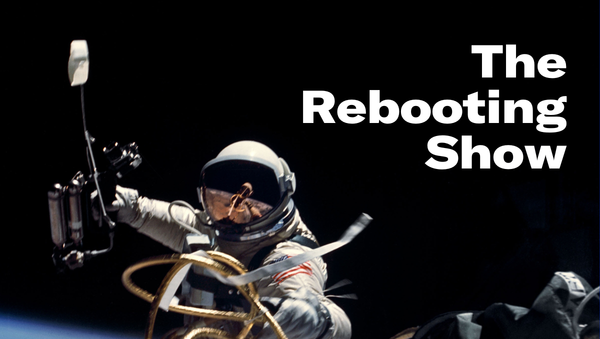Embracing uncertainty
The pandemic is going to stretch on
It’s a bad feeling when your bags are removed from the belt at check-in. Even without understanding much of the conversation in Serbian, I knew our trip to Italy wasn’t happening. What was meant to be a brief stop in Belgrade to see family would last longer. In the end, due to new travel restrictions, our vacation in Puglia was off; we ended up spending more time in Serbia before now heading to Spain.
These are small inconveniences as we near the 18-month mark of the pandemic. Just a few months ago, most of us thought this was ending. And, of course, it is ending, only the final part is going to take longer as vaccinations lag and Delta does its thing. Yet again, people and businesses will need to adapt to uncertainty. One of the impacts of this most unusual period has been it forced all of us to embrace uncertainty in so many areas, to acknowledge what was always true to a large extent: We aren’t as in control as we like to think.
What was billed as a Freedom Summer is set to end with new mask mandates and regional surges. Just when we thought we had some clarity on emerging out of the pandemic, uncertainty again has arrived for everything from in-person schooling, the return to workplaces and the revival of in-person events and gatherings. If there’s a silver lining it’s that we’ve all built up a tolerance of uncertainty, even embracing it to a degree. Like many people, I’ve had more changes in the past 18 months – leaving the city where I lived for two decades and the job I had for a decade, not to mention contracting Covid – than any previous period.
In thinking back to Before Times, I’m struck by how much certainty there was to my life. I used to joke about being the guy in the old Dunkin’ Donuts commercial who would groggily get out of bed each day mumbling “Time to make the donuts.” The challenges at work would shift but after a while at a job, you end up being on autopilot to a degree, dealing with whatever comes at you the best you can. The pandemic, as scary and awful as it has been, has changed me in some important ways. I don’t mind uncertainty. I doubt I’m alone.
When the pandemic began, I wrote about “the forced humility of recognizing there are larger forces you cannot possibly control or even influence but the resolve to adapt no matter what to fight another day.” The approaching fall will again test people and businesses to see how well they can adapt to new circumstances, even after a long period of disruption that’s stretched many to the breaking point.
What does that mean practically? The prolonged period of uncertainty should mean companies will put off the drive to return workers to their offices. This has always been odd. The pandemic has proved that taking out commutes and interruptions is a productivity boon. The counterarguments – chance meetings drive innovation, for instance – haven’t held up to scrutiny. Ultimately, the Boss Class loves offices because it’s an easy context to exert control.
The revival of the events business is going to be tough in the fall. The Biden Administration’s strategy of pushing vaccine mandates off to local governments and private businesses makes sense politically, although it’s dubious from a public health standpoint and potentially a nightmare for businesses that aren’t staffed with epidemiologists. (This reminds me of when our office manager would decide whether the office would be closed because of snow, as if she was a meteorologist. We just switched to closing the office whenever NYC schools were closed.) Many events will require vaccinations or a recent negative Covid test. Masking will be the norm.
That’s going to put a damper on the revival of events, without a doubt. The most likely outcome, unfortunately, is in-person events will struggle to revive until 2022. The only option for companies with events as a critical part of their model is to accept the uncertainty and protect against the downsides. I wouldn’t pin 2021 forecasts on a big bump from in-person events in the final part of the year.
Finally, companies will continue to struggle retaining people. The embrace of uncertainty means more people will rethink what they’re doing and why. The shift to prioritize the squishy concept of mental health — as exemplified by Naomi Osaka and most recently Simone Biles — is a cultural change. The shift from organizations to individuals will continue, yes, but I think companies themselves will need to adjust faster as people reorder their priorities and what’s important to them. The snacks and “cool” offices were always a distraction from the vast inequalities and dysfunction embedded in most companies. More people will embrace the uncertainty inherent in trying something new.




